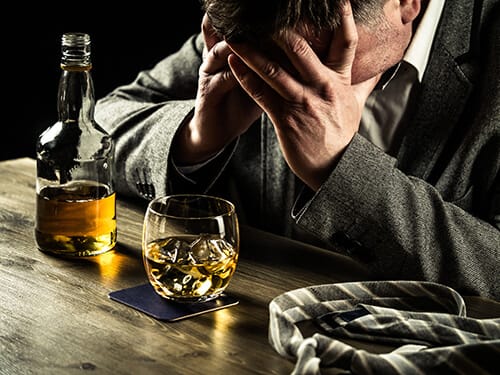
Alcohol is on the menu for most any celebration. If you want to be happy and cheerful, you drink. However, there’s a dark side to the drug. For instance, did you know that there’s a connection between alcohol and depression?
The Alcohol High and Low
Have a drink or two, and you’ll notice your inhibitions slipping. You’re more at ease in social situations. You feel like you’re relaxing. In contrast, depression symptoms occur when you overdo alcohol consumption.
You might feel sad and mourn past relationships. You feel guilt over missed opportunities. For some, the guilt turns into anger and violent outbursts. Frequently, the depression continues even after alcohol consumption ends.
How Alcohol and Depression Connect
It’s possible for depression to become a substance-induced mood disorder. The drug affects specific neurotransmitters in the brain. Therefore, it creates a chemical imbalance. For some people, it results in a worsening of depression.
Others reach for alcohol as a way to deal with an underlying depressive disorder. In this case, alcohol and depression connect through self-medicating behaviors. You drink to distract yourself from intrusive thoughts and feelings. Over time, you develop a dependency on the drug.
This situation eventually begins to feed on itself. Depression and alcohol abuse lead to problematic situations. Furthermore, you find yourself in trouble with friends or family members. Alcohol and depression now connect because the drug causes the disorder, which you try to handle by using the drug.
Deal with Both Conditions Concurrently for Best Results
Work with a rehab facility that specializes in dual diagnosis treatment. Therapists help you manage your depression while assisting you in overcoming addiction. Modalities include:
- One-on-one talk therapy for goal-setting
- Group counseling as a way to integrate peer support in recovery
- Psychotherapy that helps with the co-occurring disorder
- Family therapy to encourage open communication and an end to co-dependency patterns
- Life skills training, which provides you with alternatives for dealing with stressors and triggers
In many cases, you can receive this level of care at the partial hospitalization level. You continue to live at home but visit the rehab center every day for treatment. There’s no need to quit your job or let go of family responsibilities. As you progress in your therapy, you’ll eventually graduate to an intensive outpatient program.
That said, some program participants might start at the outpatient level. It depends on your treatment needs and the severity of the alcohol use disorder. Talking with an intake counselor at a facility helps you to make this decision.
How to Get Help for Alcohol and Depression Abuse at the Same Time
The Pennsylvania addiction recovery services that Steps to Recovery provide is an excellent starting point for healing. Find out how alcohol and depression are affecting every facet of your life and how to overcome both. You don’t have to continue in this vicious cycle of alcohol abuse and mood disorders. Call 267.209.7312 right now for immediate assistance.
Explore this article:
Explore Our Facilities
Drug and alcohol detox and residential treatment for addiction and mental health disorders
Outpatient treatment center for substance use disorder and mental health disorders
Outpatient treatment center for substance use disorder and co-occurring mental health disorders







